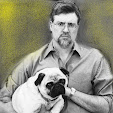 Another month has flown by. And it has been a year since I started the Levin at Large blog -- mostly as a placeholder for my low-production crime writing and reading self. The blog had 20 posts in a year -- a poor showing by the standards of regular bloggers, vaguely embarrassing for me, but good enough to keep the blog on life support. Enough reporting: on to the books, three very different ones.
Another month has flown by. And it has been a year since I started the Levin at Large blog -- mostly as a placeholder for my low-production crime writing and reading self. The blog had 20 posts in a year -- a poor showing by the standards of regular bloggers, vaguely embarrassing for me, but good enough to keep the blog on life support. Enough reporting: on to the books, three very different ones.Christa Faust is the first woman writer published by neo-pulp house Hard Case Crime. Money Shot tells the story of porn industry star and entrepreneur Angel Dare, who is shot and left for dead in the back of a car trunk. With the help of ex-cop/bodyguard Malloy, she hunts down the people who ruined her life and business -- and uncovers deeper crimes along the way. The seedy and close-knit porn world -- treated without moral judgment -- forms a great backdrop for this book's violence and pulp. Angel Dare is a tough protagonist and amateur sleuth, and Malloy is a very sharply drawn and sympathetic second player. I've found Hard Case to be a little hit and miss (though some of their reprints such as Charles Williams' Touch of Death are great). Money Shot arguably stumbles a bit near the end, but it is still a lot of fun and well worth reading.
Two quick takes: Barry Eisler's Rain Fall is the first in his John Rain cool assassin series (which is in film production). Good stuff in the techno-commando, super-hero thriller vein. Set mostly in Tokyo, the book also offers (for a U.S. reader) a welcome immersion in a foreign but accessible culture. Lost Dog is the first novel by Portland crime-writing local Bill Cameron. Bill is a very genial guy who leads the local Mystery Writers of America contingent. In Lost Dog, wayward protagonist Peter McKrall finds a body in a neighborhood park, finds himself a suspect, and becomes the object of obsession of the crazed but sympathetic killer. At times, the book seems a bit weighted by too much detail and explanation -- physical and psychological -- but ultimately Bill achieves a gritty realism often lacking in crime fiction.
